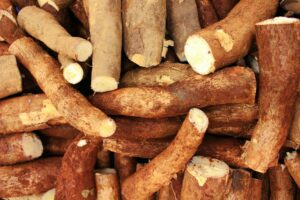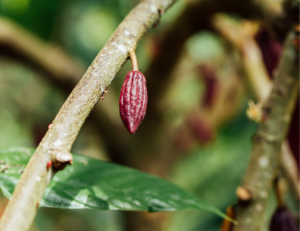Case Study
Strengthening the quality of essential and vegetable oils exports from South Africa through accreditation of testing laboratories
Summary
The Global Quality and Standards Programme South Africa (GQSP-SA) project, a SECO-funded, UNIDO-implemented project, has the objective of strengthening quality and standards compliance capacity in order to facilitate market access for small and medium-sized enterprises (SMEs) in the essential and vegetable oils value chain destined for the food, health and cosmetic markets. One of the project’s activities is to support test laboratories providing services for the essential oils produced in South Africa, to receive accreditation against the requirements of ISO/IEC 17025, following a technical support programme. This programme includes training on the requirements of ISO/IEC 17025, technical assistance for the preparation of quality manuals, and expert assistance for method validation of the physical and chemical test methods required to demonstrate the quality of the oil produced.
The importance of an SME being able to supply a certificate of analysis (CoA) from an accredited test laboratory for the essential oils produced cannot be over-emphasized. In gaining access to national, regional and international markets, having an accredited CoA for the oils helps gain customer confidence in the quality of the oil supplied, minimizes the risk of batch rejection by the customer, avoids the expense of retesting and improves acceptance of the quality of the oils produced in South Africa.
Background
South Africa is the third most biologically diverse country in the world with over 21,000 plant species. The conservation of biodiversity is high on the government’s agenda and there are opportunities to create linkages with green growth and employment creation through enhanced market access for sustainable value chains with high growth potential and sectors that can accelerate the pace of industrialization. South African essential oils are demanded in major economies such as the United States, Germany, Netherlands and the United Kingdom. In order to confirm the quality of the essential oil produced, a test certificate from an accredited test laboratory facilitates trading of the oil.
Strategy
In 2019, a study was commissioned by the GQSP-SA project to conduct a survey of test facilities in SA and other SADC Member States available to support the essential and vegetable oils value chains in establishing the composition and physical/chemical properties of the project focus essential oils (buchu, cape chamomile, helichrysum, lippia and rose geranium) and vegetable oils (baobab, kalahari melon, manketti/mongongo, marula and sour plum). The study showed a lack of commercial laboratories in South Africa and the region receiving and analysing essential oil samples on a regular basis and that the test laboratories capable of testing essential oils are at tertiary institutions, in local government departments or in-house at commercial enterprises. Following a situational analysis on other types of test laboratories available in South Africa to support the essential oils industry, a questionnaire was drafted and distributed to university departments, government institutions and agencies. The questionnaire was structured so as to obtain an insight as to whether there is: i) alignment of interests between the institution and the project; ii) existing technical capability (technical expertise and availability of equipment); recognition of competency of the test laboratory; and potential of attaining accreditation status. Responses were analyzed and three (3) test laboratories were identified for technical support from the GQSP-SA project in order to assist the laboratories to prepare for, and obtain, accreditation testing of essential oils using a range of physical and chemical test methods to demonstrate the quality of the oils.
Results and impact
The expected results and impacts are that at least three accredited testing facilities to test essential oils will be available in South Africa, and could potentially be used by producers from the SADC Member States as well. Each of the test laboratories will be capable of providing a single point of service, which means only one sample to be prepared by the SME, one courier cost for transportation of the sample to the test laboratory, and one CoA covering the testing requirements to demonstrate the physical and chemical product quality of the produced oil.
Contact
Mr. Juan Pablo DAVILA (Project Manager, GQSP South Africa): j.davila@unido.org
Dr. Elsie MEINTJIES (Chief Technical Advisor, GQSP South Africa): e.meintjies@unido.org








